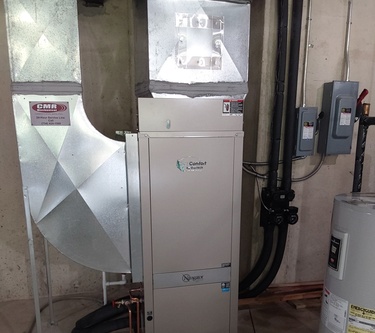Geothermal Pumps
Naturally Control Climate and Cost
GeoComfort systems are designed with advanced components like corrosion-resistant micro-channel air coils and energy-efficient ECM blower motors. Each system is rigorously tested before leaving the factory, ensuring top performance and backed by the best warranty in the industry.

Is Geothermal Your Best Option?
Have you considered a geothermal heating or cooling system for your Michigan home? We think you should, and to help you reach a conclusion that best fits your needs, we’re going to explain the meaning of the most common terms related to geothermal energy! If you have any questions after reading this article, or if you’d like a free, no-obligation evaluation in your home or business in the Ann Arbor or Dexter area, please call us today!
Geothermal Heat Pumps
A “geothermal heat pump” is a climate control system that pumps heat to or from the ground. Because the ground below a certain level stays at a fairly consistent temperature throughout the year, it can be a heat source in the winter and a “heat sink” in the summer. To do these things, the heat pump is connected to some kind of heat exchanger. That can be a long series of tubes installed underground or even a similar set of tubes underwater in a lake or pond.
What is a “Closed Loop” or “Ground Loop” Geothermal System?
Closed Loop refers to the fact that the fluid in the pipes – buried underground or underwater– is circulated in a loop from the heat pump through the length of the pipes, and back to the heat pump. The fluid, which could be antifreeze or some similar solution, stays entirely within the “closed loop.” A Ground Loop system is simply a closed loop system that is buried under the ground.
What is an “Open Loop” “Water to Water” or “Pump and Dump” Geothermal System?
Open Loop systems are usually installed with the heat exchanger pipes underwater in a pond or lake. The fluid (in this case, water) is pumped through the system and out the end of the discharge pipe. Water from the pond or lake is pumped in through the intake pipe and back to the heat pump, where its temperature helps to cool the building in the summer or heat it in the winter. This is sometimes called a “Water to Water” Geothermal System.
One type of Open Loop system is called “Pump and Dump.” Pump and Dump simply means that water is pumped in from some nearby source (such as a pond, lake, or underground aquifer), and then “dumped” back, either on the ground or into the same source after it has passed through the system.
Vertical Closed Loop
A “Vertical Closed Loop” is one that is buried underground, often extending as far as 200 feet down. The holes surrounding the pipes of the heat exchanger are filled with some material to help transfer heat or cold into the fluid contained within the pipes, sometimes called “grout.” Because the pipes are buried vertically instead of spread out over a large area, these Vertical Closed Loop systems can be installed with a much smaller “footprint” than Horizontal Loop Systems. In cities and towns that allow geothermal systems, these Horizontal Systems are often the best choice for homeowners.
What are some Popular Brands of Geothermal Systems?
Some of the best known brands available in Michigan are GeoComfort, Florida Heat Pump, and Water Furnace. These brands are available through CMR Mechanical here in Dexter, Michigan, and we would be happy to meet with you to discuss the benefits of each brand. We’ll guide you to determine which best suits your needs.
Geothermal in Ann Arbor: Contact the Experts at CMR Mechanical!
We’re happy to help! Please contact us today to discuss any of these terms: Geothermal, geothermal heating or cooling system, geothermal energy, Geothermal Heat Pumps, Closed Loop, Ground Loop, Open Loop, Water to Water, Pump and Dump, Vertical Closed Loop, Horizontal Loop Systems, GeoComfort, Florida Heat Pump, Water Furnace, or the 30% Geothermal Tax Credit.









